True
Navigation
Install the app
How to install the app on iOS
Follow along with the video below to see how to install our site as a web app on your home screen.
Note: This feature may not be available in some browsers.
More options
You are using an out of date browser. It may not display this or other websites correctly.
You should upgrade or use an alternative browser.
You should upgrade or use an alternative browser.
A huge neglected frontier in reefkeeping
- Thread starter Randy Holmes-Farley
- Start date
- Tagged users None
Love the topic.
I'm not surprised that sponges and other organisms have developed the feature, probably by accident, that remove viruses.
In such a complex ecosystem it is rare there isn't a cycle of life that can't find a balance.
I think this goes back to someone else's point about the biggest virus being the aquarist - not just due to what they do or don't do but also their creation of their glass box - how many systems on this forum don't have sand, or sponges, or macroalgae, or any form of real bioload from NSW or live rock. Or do some of these things then nuke it all from orbit with UV sterilizers!
I don't have the experience or evidence to back this point up, but I would suggest that lacking the complete ecosystem risks increased harm from viruses in various vectors.
I'm not surprised that sponges and other organisms have developed the feature, probably by accident, that remove viruses.
In such a complex ecosystem it is rare there isn't a cycle of life that can't find a balance.
I think this goes back to someone else's point about the biggest virus being the aquarist - not just due to what they do or don't do but also their creation of their glass box - how many systems on this forum don't have sand, or sponges, or macroalgae, or any form of real bioload from NSW or live rock. Or do some of these things then nuke it all from orbit with UV sterilizers!
I don't have the experience or evidence to back this point up, but I would suggest that lacking the complete ecosystem risks increased harm from viruses in various vectors.
And Looking at the surface of corals we see 100 million microbes per sq cm. Looking at Veron's work we see some coral species are only found in the presence of sibling species*. Wright, et al, showed immune systems of corals can vary significantly at the genotype level. Walsh, et al, showed benthic organisms alter the species microbes of in the water around them. As far as good or bad I'd reiterate was was told to me a couple decades ago by a local hosptial's director of infectious diseases. In a brief conversation where she was asking me some questions about what goes on in a reef she commented that it wasn't that bacteria was good or bad it was wehter or not they were in the right place doing the right thing.
@AquaBiomics has been offering testing to help identify microbes (including coral diseases) for a few years now and I've been posting about Rohwer's book and how DOC (carbon dosing) alters microbiomes to the deteriment of corals since 2014 (and video since 2017) so not maintaining healthy microbiomes hasn't been neglected by every reefer.
For those interested, here's some links including Rohwer's book and video:
"Coral Reefs in the Microbial Seas " This video compliments Rohwer's book of the same title (Paper back is ~$20, Kindle is ~$10), both deal with the conflicting roles of the different types of DOC (ie carbon dosing) in reef ecosystems and how it can alter coral microbiomes. While there is overlap bewteen his book and the video both have information not covered by the other and together give a broader view of the complex relationships found in reef ecosystems
Changing Seas - Mysterious Microbes
Microbial view of Coral Decline
Nitrogen cycling in hte coral holobiont
BActeria and Sponges
Maintenance of Coral Reef Health (refferences at the end)
* Acropora microclados or strawberry shortcake is an one example aquarists might be familiar with. It's ideal spot is in areas with 95% Acropora cover and high agitation from waves.
@AquaBiomics has been offering testing to help identify microbes (including coral diseases) for a few years now and I've been posting about Rohwer's book and how DOC (carbon dosing) alters microbiomes to the deteriment of corals since 2014 (and video since 2017) so not maintaining healthy microbiomes hasn't been neglected by every reefer.
For those interested, here's some links including Rohwer's book and video:
"Coral Reefs in the Microbial Seas " This video compliments Rohwer's book of the same title (Paper back is ~$20, Kindle is ~$10), both deal with the conflicting roles of the different types of DOC (ie carbon dosing) in reef ecosystems and how it can alter coral microbiomes. While there is overlap bewteen his book and the video both have information not covered by the other and together give a broader view of the complex relationships found in reef ecosystems
Changing Seas - Mysterious Microbes
Microbial view of Coral Decline
Nitrogen cycling in hte coral holobiont
BActeria and Sponges
Maintenance of Coral Reef Health (refferences at the end)
* Acropora microclados or strawberry shortcake is an one example aquarists might be familiar with. It's ideal spot is in areas with 95% Acropora cover and high agitation from waves.
Last edited:
Oooops! Forgot Feldman's stuff back in 2009. He certainly tried to point out some issues with some assumptions. Here's links for any "newbies interested:
Total Organic Carbon Pt 1
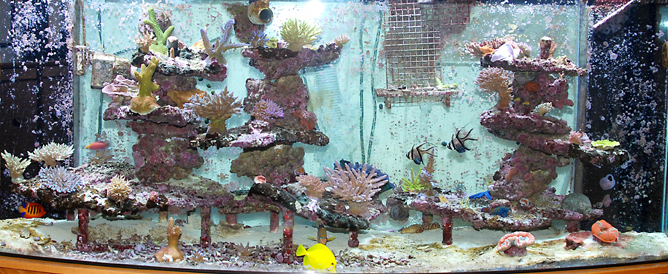
 reefs.com
reefs.com
Total Organic Carbon Pt 2
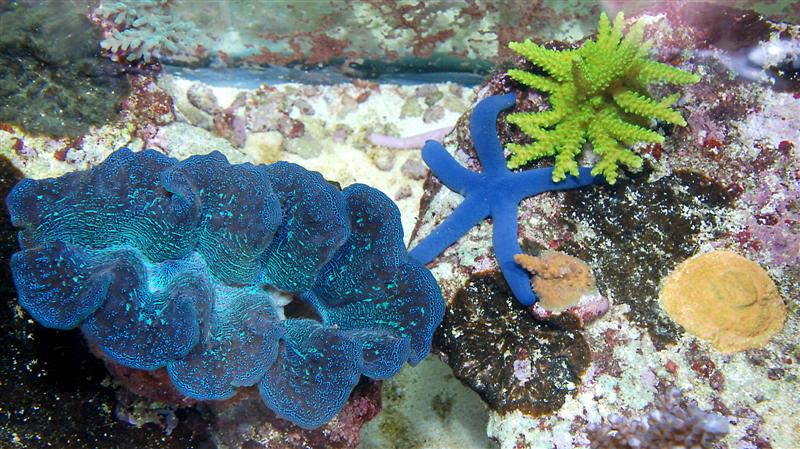
 reefs.com
reefs.com
Protein Skimmer Performance, Pt 1
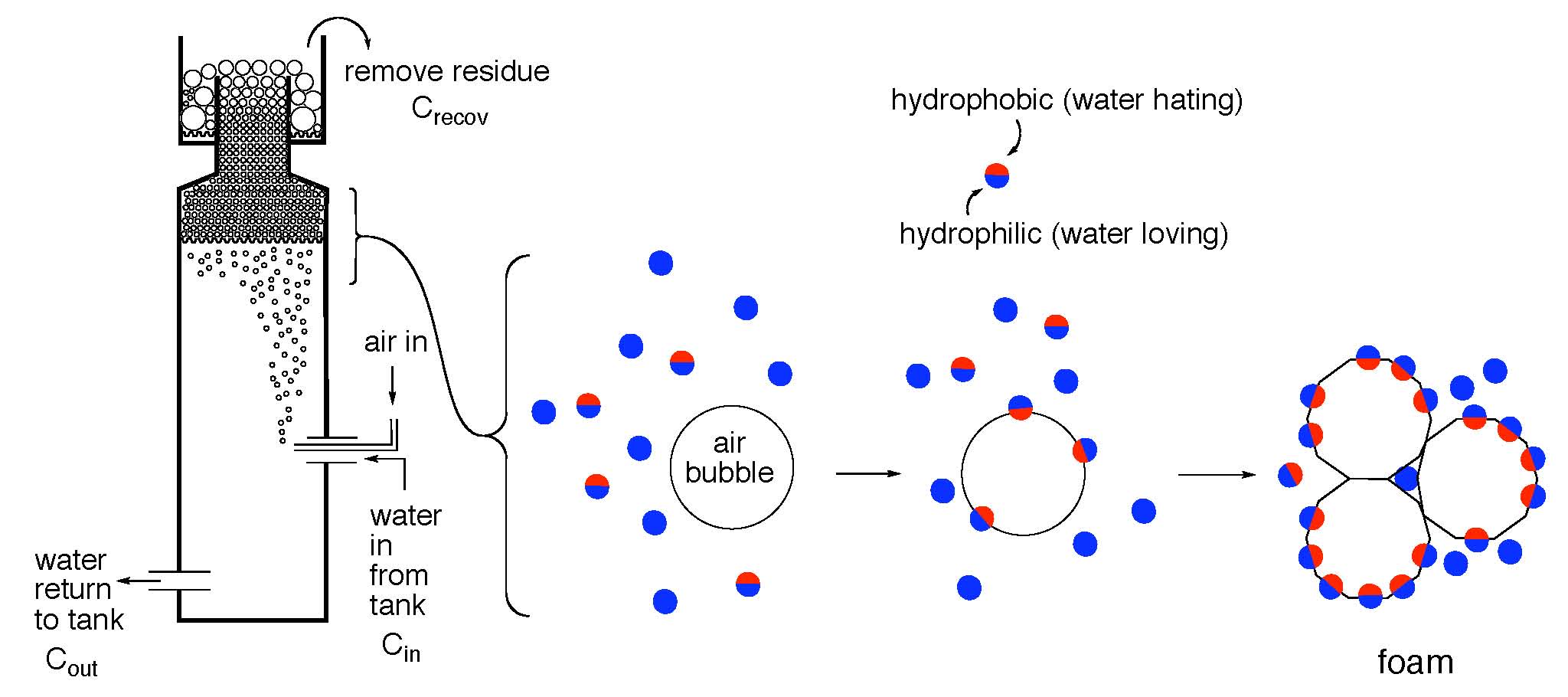
 reefs.com
reefs.com
Protein Skimmer Performance, Pt 2

 reefs.com
reefs.com
Elemental Analysis of Skimmate
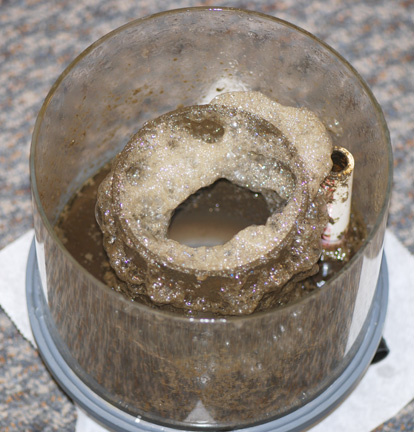
 reefs.com
reefs.com
Bacterial Counts in Reef Aquarium Water
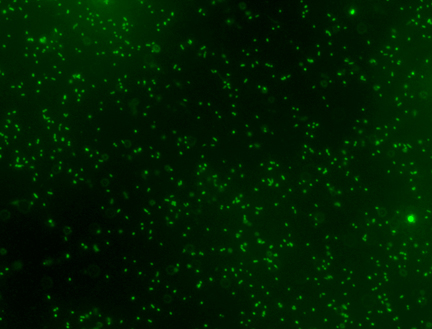
 reefs.com
reefs.com
Total Organic Carbon Pt 1

Total Organic Carbon (TOC) and the Reef Aquarium: an Initial Survey, Part I
Department of Chemistry, The Pennsylvania State University, University Park, PA 16802. Ken and Kelly report on their work on Total Organic Carbon and how it relates to the reef aquarium.
Total Organic Carbon Pt 2

Total Organic Carbon (TOC) and the Reef Aquarium: an Initial Survey, Part II
Department of Chemistry, The Pennsylvania State University, University Park, PA 16802. Ken and Kelly continue to report on their work on Total Organic Carbon and how it relates to the reef aquarium.
Protein Skimmer Performance, Pt 1

The Development of a Method for the Quantitative Evaluation of Protein Skimmer Performance
Department of Chemistry, The Pennsylvania State University, University Park, PA 16802. Protein skimmers have become indispensable for many aquarists who strive to maintain the high water quality necessary to keep stony corals.
Protein Skimmer Performance, Pt 2

Further Studies on Protein Skimmer Performance
Department of Chemistry, The Pennsylvania State University, University Park, PA 16802. Many factors contribute to the 'value' of a skimmer to an aquarist, including quality of construction, size, footprint, noise level, ease of cleaning, energy efficiency of the pump, and of course, the ability...
Elemental Analysis of Skimmate

Elemental Analysis of Skimmate: What Does a Protein Skimmer Actually Remove from Aquarium Water?
Department of Chemistry, The Pennsylvania State University, University Park, PA 16802. The chemical/elemental composition of skimmate generated by an H&S 200-1260 skimmer on a 175-gallon reef tank over the course of several days or a week had some surprises.
Bacterial Counts in Reef Aquarium Water

Bacterial Counts in Reef Aquarium Water: Baseline Values and Modulation by Carbon Dosing, Protein Skimming, and Granular Activated Carbon Filtration
What are the bacteria populations in the water column of reef tanks, and how does that value compare with bacterial counts in authentic reef water? Does carbon dosing indeed increase water column bacteria populations (i.e., is growth carbon limited)? Does mechanical filtration (protein skimming...
Each liter of natural seawater contains a billion bacteria.
Reef keepers prattle on endlessly about good and bad bacteria.
Each liter of natural seawater contains ten times that many viruses.
When was the last time a reef keeper asked whether any of those trillions of viruses in their aquarium might be contributing to the problems they are experiencing?
There's no easy answer to this issue. We can barely get a handle on a handful of human pathogenic viruses. Perhaps that's why it's not discussed much, but that doesn't mean it isn't playing a large role in reef aquaria.
How would we even know?
There is a constant stream of folks with problems that might be viruses. But there are no tests and no solutions.
Is ignorance bliss? Not to the guy who loses his prized organism for unknown reasons.
Each liter of natural seawater contains a billion bacteria.
Reef keepers prattle on endlessly about good and bad bacteria.
Each liter of natural seawater contains ten times that many viruses.
When was the last time a reef keeper asked whether any of those trillions of viruses in their aquarium might be contributing to the problems they are experiencing?
There's no easy answer to this issue. We can barely get a handle on a handful of human pathogenic viruses. Perhaps that's why it's not discussed much, but that doesn't mean it isn't playing a large role in reef aquaria.
How would we even know?
There is a constant stream of folks with problems that might be viruses. But there are no tests and no solutions.
Is ignorance bliss? Not to the guy who loses his prized organism for unknown reasons.
If natural seawater contains that many viruses per liter and the viruses are the problem then Id think the world would look very bleak. In my mind it has more to do with orderly balance than anything else. This may be biased but ive noticed that a biome specific tank tends to be extremely healthy in a way that is harder to achieve with organisms that come from all over the ocean and only have temperature range in common.Each liter of natural seawater contains a billion bacteria.
Reef keepers prattle on endlessly about good and bad bacteria.
Each liter of natural seawater contains ten times that many viruses.
When was the last time a reef keeper asked whether any of those trillions of viruses in their aquarium might be contributing to the problems they are experiencing?
There's no easy answer to this issue. We can barely get a handle on a handful of human pathogenic viruses. Perhaps that's why it's not discussed much, but that doesn't mean it isn't playing a large role in reef aquaria.
How would we even know?
There is a constant stream of folks with problems that might be viruses. But there are no tests and no solutions.
Is ignorance bliss? Not to the guy who loses his prized organism for unknown reasons.
Randy Holmes-Farley
Reef Chemist
View Badges
Staff member
Super Moderator
Excellence Award
Expert Contributor
Article Contributor
R2R Research
My Tank Thread
- Joined
- Sep 5, 2014
- Messages
- 67,438
- Reaction score
- 63,839
If natural seawater contains that many viruses per liter and the viruses are the problem then Id think the world would look very bleak. In my mind it has more to do with orderly balance than anything else. This may be biased but ive noticed that a biome specific tank tends to be extremely healthy in a way that is harder to achieve with organisms that come from all over the ocean and only have temperature range in common.
I’m not sure we have any info bearing on how problematic viruses are in any given aquarium. They may be no problem or they may be a bad problem, just as they are for other organisms such as people.
While I do not know if your observation is generally correct or not, there can be many reasons aside from lack of viruses to think a tank with organisms that have adapted to one another over long periods of time may do better together compared to organisms that have no history of living in close proximity.
Thats kind of what I was getting at. It seems to me that given the chance viral load tends to seek balance, just like bacterial diversity, only as we see with bacteria if some variable is overly skewed then that balance gets disproportionate. Which is, in my mind, an explanation as to why I have seen biome tanks generally do better in the sense of more easily finding that "everything is fine" equilibrium, maybe its that in nature those organisms are used to the bacteria/viruses present or maybe its that fish/corals from all over the place cause the populations to be too varied to strike a meaningful balance? Although I'd imagine that the understanding of the actual mechanisms behind these things are far from us.I’m not sure we have any info bearing on how problematic viruses are in any given aquarium. They may be no problem or they may be a bad problem, just as they are for other organisms such as people.
While I do not know if your observation is generally correct or not, there can be many reasons aside from lack of viruses to think a tank with organisms that have adapted to one another over long periods of time may do better together compared to organisms that have no history of living in close proximity.
Thats like Ive been reading through threads where people are talking about definitely having ich in their tank but with no symptoms. In the past I kept several tanks where I did nothing to treat ich aside from keep params where they should be and feed quality food, Id add fish slow generally 6 weeks or more between additions and sometimes when I added one there would be a small ich flare up, 3 or so spots on a fish for a handful of days and then it would disappear again. A lot of people would balk at that but those were far and away the healthiest tanks that I had, and I can say that Ive never lost a fish due to disease.
I guess my real point is we tend to overcomplicate things that are actually fairly simple.
Randy Holmes-Farley
Reef Chemist
View Badges
Staff member
Super Moderator
Excellence Award
Expert Contributor
Article Contributor
R2R Research
My Tank Thread
- Joined
- Sep 5, 2014
- Messages
- 67,438
- Reaction score
- 63,839
On the ich point, I am entirely confident that ich can exist in reef tanks without showing any symptoms.
My tank was up for 20 years, and I never had visible ich or other diseases, at least that I can remember, except when a power failure hit while I was on vacation. The stresses caused a couple of fish to show ich. They cleared it not long after getting things back on track, but obviously the disease organisms were present.
My tank was up for 20 years, and I never had visible ich or other diseases, at least that I can remember, except when a power failure hit while I was on vacation. The stresses caused a couple of fish to show ich. They cleared it not long after getting things back on track, but obviously the disease organisms were present.
It's important to understand viruses or phages as they are commonly reffered to by researchers now, are omnipresent in coral microbiomes. As posts here demonstrate, the common perception is phages are bad. In reality phages are essential components of an organisms immune processes. There are good and bad phages. There are also phages that may be living in coral microbiomes without causing problems (lysogenic) and stress can switch them to a disease causing reproductive mode (lytic) causing cell death.
As coral microbiomes, which includes phages, are species specific it seems reasonable to expect species specific responses to stress events. Besides stress events like excessive changes in temperature, excessive changes in lighting, insufficient or excessive nutrients (particulate, organic and inorganic C, N & P) the microbial processes in a system in general (aurabiome if you will) are also factors.
The take away as I see it is reef ecosystems are an incredibly complex with layers upon layers upon layers and species specific variables at every level. Quoting Martin Moe "It's not rocket science, it's a lot more complicated." Since there is a great deal still to be learned and we know the microbial processes in a reef system are critical for sustaining corals AND corals are actively trying to promote processes benefical for themselves, to maintain corals sustainably for the decades or centuries they can live it seems we should not be promoting practices we know skew microbial processes especially as we can't easily quantify or identify which species is proliferating.
As coral microbiomes, which includes phages, are species specific it seems reasonable to expect species specific responses to stress events. Besides stress events like excessive changes in temperature, excessive changes in lighting, insufficient or excessive nutrients (particulate, organic and inorganic C, N & P) the microbial processes in a system in general (aurabiome if you will) are also factors.
The take away as I see it is reef ecosystems are an incredibly complex with layers upon layers upon layers and species specific variables at every level. Quoting Martin Moe "It's not rocket science, it's a lot more complicated." Since there is a great deal still to be learned and we know the microbial processes in a reef system are critical for sustaining corals AND corals are actively trying to promote processes benefical for themselves, to maintain corals sustainably for the decades or centuries they can live it seems we should not be promoting practices we know skew microbial processes especially as we can't easily quantify or identify which species is proliferating.
I had never thought of a coral being its own microbiome in that sort of way before. Interesting.It's important to understand viruses or phages as they are commonly reffered to by researchers now, are omnipresent in coral microbiomes. As posts here demonstrate, the common perception is phages are bad. In reality phages are essential components of an organisms immune processes. There are good and bad phages. There are also phages that may be living in coral microbiomes without causing problems (lysogenic) and stress can switch them to a disease causing reproductive mode (lytic) causing cell death.
As coral microbiomes, which includes phages, are species specific it seems reasonable to expect species specific responses to stress events. Besides stress events like excessive changes in temperature, excessive changes in lighting, insufficient or excessive nutrients (particulate, organic and inorganic C, N & P) the microbial processes in a system in general (aurabiome if you will) are also factors.
The take away as I see it is reef ecosystems are an incredibly complex with layers upon layers upon layers and species specific variables at every level. Quoting Martin Moe "It's not rocket science, it's a lot more complicated." Since there is a great deal still to be learned and we know the microbial processes in a reef system are critical for sustaining corals AND corals are actively trying to promote processes benefical for themselves, to maintain corals sustainably for the decades or centuries they can live it seems we should not be promoting practices we know skew microbial processes especially as we can't easily quantify or identify which species is proliferating.
Edit: left words out
Ive heard and read about this...it's an interesting topic not restricted to this hobby but bacteriophage therapy is a possible solution for antibiotic resistant bacterial infections in humans which is highly interesting to me...(I know you're well aware of that but maybe some aren't)At small scales the intentional introduction of phages (viruses that kill particular bacteria) has been used against bacterial pathogens causing coral disease.
Phage therapy treatment of the coral pathogen Vibrio coralliilyticus
Is it ready to be useful? I don't think it's close. That paper was 2013 and there hasn't really been a flood of progress on that front since (judging by the dates on the papers.)
I think the hobby would respond pretty positively to alternatives to widespread use of antibiotic medications.
- Joined
- Jul 16, 2009
- Messages
- 3,211
- Reaction score
- 4,863
Good point juxtaposing when we know about the effects on coral side where there is little study vs what little we know on the human side and it is a heavily studies topic.Each liter of natural seawater contains a billion bacteria.
Reef keepers prattle on endlessly about good and bad bacteria.
Each liter of natural seawater contains ten times that many viruses.
When was the last time a reef keeper asked whether any of those trillions of viruses in their aquarium might be contributing to the problems they are experiencing?
There's no easy answer to this issue. We can barely get a handle on a handful of human pathogenic viruses. Perhaps that's why it's not discussed much, but that doesn't mean it isn't playing a large role in reef aquaria.
How would we even know?
There is a constant stream of folks with problems that might be viruses. But there are no tests and no solutions.
Is ignorance bliss? Not to the guy who loses his prized organism for unknown reasons.
I think the only real research has been done on STN and it does appear to be virally driven if I remember the last talk from Mike Paletta.
- Joined
- May 22, 2016
- Messages
- 6,563
- Reaction score
- 10,139
I'll add one more speculative idea on the concept about viruses/phages possibly being used as a directed tool, and the potential for development there.
@Dan_P has pointed out to me several times that growing cyanobacterial films will sometimes have these "circles of death" - spots in an otherwise growing film where the cyano is totally gone. The spots looks exactly like what you might guess would happen if there were some sort of infection of the cyanobacteria that was killing them.
perhaps phages that are effective at killing nuisance cyano mats can be found in our systems, and maybe an academic/professional with the an interest and the right tools could use them intentionally for that purpose.
@Dan_P has pointed out to me several times that growing cyanobacterial films will sometimes have these "circles of death" - spots in an otherwise growing film where the cyano is totally gone. The spots looks exactly like what you might guess would happen if there were some sort of infection of the cyanobacteria that was killing them.
perhaps phages that are effective at killing nuisance cyano mats can be found in our systems, and maybe an academic/professional with the an interest and the right tools could use them intentionally for that purpose.
I always assumed that happened because the cyano in that area created conditions underneath it that it couldnt handleI'll add one more speculative idea on the concept about viruses/phages possibly being used as a directed tool, and the potential for development there.
@Dan_P has pointed out to me several times that growing cyanobacterial films will sometimes have these "circles of death" - spots in an otherwise growing film where the cyano is totally gone. The spots looks exactly like what you might guess would happen if there were some sort of infection of the cyanobacteria that was killing them.
perhaps phages that are effective at killing nuisance cyano mats can be found in our systems, and maybe an academic/professional with the an interest and the right tools could use them intentionally for that purpose.
the impact of this thread: a huge portion of readers look up antiviral human medication, order it off chop shop online pill mills, and dump it into their tanks with no controls in place at all. don't deny the possibility, we just saw six straight years of cipro dosing using the exact same m.o.
fascinating detail to review though. what impacts viruses have in bleach events, maybe even tank invasion events through some unknown tie-in/
fascinating detail to review though. what impacts viruses have in bleach events, maybe even tank invasion events through some unknown tie-in/
- Joined
- Sep 21, 2018
- Messages
- 6,690
- Reaction score
- 7,180
The filaments at the edges of those clear circles under the microscope looked very different from the filaments in the unaffected part of the film. I never tried infecting other parts of the film with the ravaged filaments.I'll add one more speculative idea on the concept about viruses/phages possibly being used as a directed tool, and the potential for development there.
@Dan_P has pointed out to me several times that growing cyanobacterial films will sometimes have these "circles of death" - spots in an otherwise growing film where the cyano is totally gone. The spots looks exactly like what you might guess would happen if there were some sort of infection of the cyanobacteria that was killing them.
perhaps phages that are effective at killing nuisance cyano mats can be found in our systems, and maybe an academic/professional with the an interest and the right tools could use them intentionally for that purpose.
I’ve got a aquabiomics bacteria test about to be sent out. Not because I think it will solve some sorta problems. But mostly because I’m curious about it
- Joined
- May 22, 2016
- Messages
- 6,563
- Reaction score
- 10,139
In some cases that probably happens. But Dan's observed stuff like this... a thin film on a petri dish, no underlying substrate conditions to explain it. Spots that look like maybe the cyano film is suffering a localized killer of some sort.I always assumed that happened because the cyano in that area created conditions underneath it that it couldnt handle
Similar threads
- Replies
- 1
- Views
- 63
-
- Poll
- Replies
- 38
- Views
- 1,309
- Replies
- 19
- Views
- 313
-
- Poll
- Replies
- 19
- Views
- 904















